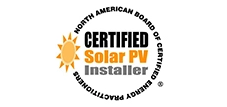Benefits of Solar Energy
Solar energy offers multiple advantages that will enhance your home for years to come.
- Lowered energy bills: With solar panels, you generate power without paying the tacked-on costs of grid-connected power. Going off-grid can eliminate your bills completely. Plus, a significant amount of states offer net metering, which permit you to earn money by selling your unused energy back to the grid.
- Reduced carbon footprint: Using clean solar power means you're less dependent on fossil fuels, which emit harmful greenhouse gasses.
- Better energy independence: Adding a battery backup or storage system lets you have trustworthy energy during storms and grid outages.
What Solar Incentives Are Available to Minneapolis Homeowners?
Governments and power companies often incentivize homeowners for switching to solar. Here are some of the tax credits, rebates, or other programs you could qualify for.
Incentive Type: Performance-Based Incentive
Website: xcelenergy.comIncentive Amount:
Systems 0.5 kW - 25 kW: $0.005/kWh
Medium-sized Systems 25.1-500 kW: $0.0375/kWh
Large Systems (>500kW): Determined through competitive bid
Incentive Type: Sales Tax Incentive
Incentive Amount:
100% exemption
Incentive Type: Property Tax Incentive
Incentive Amount:
Solar: 100% exemption from real property taxes
Wind: 100% exemption from real and personal property taxes
Incentive Type: Sales Tax Incentive
Incentive Amount:
100% of sales tax
Incentive Type: Rebate Program
Website: xcelenergy.comIncentive Amount:
Refrigerator/Freezer Recycling: $50
Natural Gas Furnace Existing Home: $200-$400
Natural Gas Furnace New Construction: $100-$200
Natural Gas Hot Water Boiler: $100-$400
ECM Furnace: $100
Central AC: $150-$450
Tank Water Heater: $75-$500
Tankless Water Heater: $250
Attic/Wall Insulation: 30% of project cost
Air Sealing: $150-$200
Furnaces: $200-$425
Boilers: $125-$400
ECM Motor Furnace Fan: $125
Programmable Thermostat: $10
Heat Pumps: $175-$475
Water Heating: $100-$250
Clothes Washer: $10
Refrigerator: $15
Ground Source Heat Pump: $150/ton
Incentive Type: Rebate Program
Website: bpu.orgIncentive Amount:
Dishwasher: $35
Clothes Washer: $35
Electric Clothes Dryer: $35
Refrigerator: $35
Freezer: $35
Dehumidifier: $20
Room/Window A/C: $35
High Efficiency Electric Water Heater: $35
Central A/C Tune-Up: $35
Central A/C: $200-$350
Mini Split/Ductless A/C: $250
ECM Replacement Motor: $100
Furnaces: $200-$375
Heat Pump Water Heater: $250
Air Source Heat Pump: $250
Geothermal Heat Pump: $100/ton
Incentive Type: Grant Program
Website: xcelenergy.comIncentive Amount:
Varies
Incentive Type: Loan Program
Website: connexusenergy.comIncentive Amount:
$7,500
OR
$20,000
Incentive Type: Rebate Program
Website: connexusenergy.comIncentive Amount:
EV Charger Installation: $500
Wi-Fi Thermostat: $125
Honeywell Wi-Fi Thermostat: Free, with enrollment in PowerNap Wi-Fi Air Conditioning program
Load Control: Varies
Peak-Time Rebate: $1/kWh saved
Incentive Type: Rebate Program
Website: energywisemn.comIncentive Amount:
Varies by measure and member cooperative offering.
Incentive Type: Rebate Program
Website: whe.orgIncentive Amount:
Ground Source Heat Pump: up to $1,200
Quick Cash Air-Source Heat Pump: up to $900
Quick Cash Air Conditioning: up to $200
Peak Shave Water Heating: $15/kW
Quick Cash Water Heating: Up to $950
Metered Water Storage: $0.06/kWh
Ductless Air Source Heat Pump: $200
Quick Cash Water Storage: up to $300
Dual Fuel: $5/kW
Electric Thermal Storage (ETS) $5/kW
HVAC Electronically Commutated Motor: $50/motor
Pool Pumps: $200-$400
Incentive Type: Loan Program
Website: mncee.orgIncentive Amount:
$20,000
Incentive Type: Loan Program
Website: mnhousing.govIncentive Amount:
$15,000. Applicants may be eligible for higher loan and term amounts depending on income
Incentive Type: Performance-Based Incentive
Website: mn.govIncentive Amount:
1.5¢/kWh
1.0¢/kWh for certain hydro facilities in need of repair
Incentive Type: Personal Tax Credit
Website: ecowatch.comIncentive Amount:
30% federal tax credit for systems placed in service after 12/31/2021 and before 01/01/2033. Good for: solar water heat, solar photovoltaics, biomass, geothermal heat pumps, wind (small), fuel cells using renewable fuels.
How To Choose the Best Solar Company in Minneapolis
Choosing a company is the first step toward a well-oiled and valuable solar array. Make your choice based on the following crucial aspects.
Licensing and Training
To install a new photovoltaic system in Minnesota, a contractor must have an electrical contractors' or electricians' license from the Department of Labor and Industry, along with a residential building or remodeling contractors' license in some cases. If their work is regulated by the state's Mechanical Code, they must have a $25,000 minimum bond with the Department of Labor and Industry. Solar providers can also earn certificates from trade groups and standards organizations. The most recognized ones in the industry come from the NABCEP. Most company websites will prominently display earned credentials, but you should also ask your estimator for more information.
Cost of Solar Panels in Minneapolis
Your solar panels' model will influence how much energy you can produce. Monocrystalline panels are among the highest quality and cost the most but perform the best. Polycrystalline panels generate less, but they're a great traditional option for low budgets. Thin-film panels have a low cost and are excellent for non-traditional roofs, but aren't recommended for large home installations.
You can also add electric car (EV) chargers and battery backup systems. These will increase your total installation cost, but they can improve your solar system's performance. Not every solar provider provides these optional components, so look for a contractor that installs them if it's crucial for you.
Generally speaking, it will cost about $20,150 for a five-kilowatt solar array in Minneapolis. This table shows more specific costs for different solar panel types and system components in your area.
| Solar Panel Cost | Average Cost |
|---|---|
| Solar Monocrystalline | $1,252 |
| Solar Polycrystalline | $976 |
| Thin-Film | $571 |
| Solar Battery | $801 |
| Solar Home EV Charger | $3,004 |
Financing Solar Energy in Minneapolis
Choosing the best financing solution will affect your overall solar system cost and potential savings. Common payment options include loans, leases, power purchase agreements, and cash payments. Most solar experts recommend a cash payment or using a solar loan. Cash payments demand a large up-front sum, but they help you avoid paying interest, grant you system ownership, and qualify you for cost-saving solar incentives. Solar loans have the same benefits, though you'll pay more in total due to interest and fees. Similar to an auto or home loan, you'll pay a set monthly rate with as little as $0 down. Solar leases let you rent your panels for a set monthly rate, while PPAs let you pay only for the energy you use, much like an electric bill. Both options disqualify you for solar incentives and do not provide you system ownership. Solar experts generally don't recommend them, but they might be suitable in some cases. Ask each installer you're vetting about the payment plans it offers. A staff member can help you determine the most suitable option for your budget.
The table below lists the average payback periods for different capacities of solar systems in Minneapolis.
You are eligible for a 26% federal solar tax credit for new solar energy devices until the year 2032. Local and state governments and utility companies might also offer discounts, rebates, and unique financing solutions that could save you more.
| Solar System Capacity | Estimated Payback period |
|---|---|
| 1 kW | 2.3 years |
| 2 kW | 4.6 years |
| 5 kW | 11.6 years |
| 10 kW | 23.1 years |
Ready to Get a Quote on Your Solar Project?
Please enter a valid 5-digit zip code!
Frequently Asked Questions About Solar in Minneapolis
How much energy and money could I save per year by switching to solar?
Is solar energy easily accessible in Minneapolis?
Will a solar PV system boost my Minneapolis home price?
How long is a Minneapolis solar panel's average lifespan?
What size should my new Minneapolis solar system be?
How long does it take to pay back a solar loan in Minneapolis?
What are some "red flags" to watch for as I research companies?
- Pressuring you into signing a contract
- Not being straightforward about training and credentials, warranties, cost and references
- Inflexible options
- Superficial, rushed site evaluation
- Limited customer feedback
How are a solar lease and PPA different?
If you choose a lease, you'll make set payments each month.
With both leases and PPAs, you don't own your panels and lose eligibility for some incentives. Further, you'll have to "buy out" or transfer the contract if you sell your home during the term.
To share feedback or ask a question about this article, send a note to our Reviews Team at reviewsteam@thisoldhousereviews.com.

















